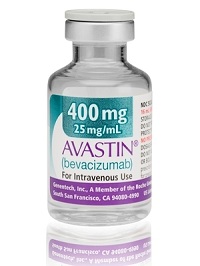 |
| New data showed Avastin helped patients with advanced cervical cancer live longer.--Courtesy of Richard Morgenstein/Genentech |
Could Avastin be on its way to another indication? On the heels of a broader approval for the drug in ovarian cancer in the EU, the U.S. National Institutes of Health has unveiled data showing Avastin helped patients with advanced cervical cancer live longer.
The survival benefit surfaced in an interim analysis of data from the GOG240 trial, a 452-patient study by the Gynecological Oncology Group, The Wall Street Journal reports. (Roche ($RHHBY) provided the drug for the study but wasn't involved with the trial itself.) Women given Avastin in addition to chemotherapy had a median survival of 17 months, compared with 13.3 months in the chemo-only arm.
"The findings in this clinical trial are important because they are likely to change clinical practice and provide an opportunity to improve outcomes in patients with recurrent cervical cancer who have previously had very limited treatment options," GOG researcher Krishnansu S. Tewari said (as quoted by the WSJ).
Full data is slated for release at this year's American Society of Clinical Oncology meeting. A spokesman for Roche's U.S. unit Genentech told the WSJ that the company would review the data before deciding whether to ask FDA for a new approval in cervical cancer.
Avastin is already Roche's third-best-selling drug with $6.3 billion in 2012 sales. The drug won approval from European regulators last fall for broader use in ovarian cancer, despite a lack of data about its effects on overall survival. FDA rejected the drug for that use--and revoked its breast-cancer approval--but Avastin remains widely used in colorectal cancer, brain cancer, lung cancer and kidney cancer.
- see the WSJ story (sub. req.)
Special Report: Avastin - The 15 best-selling drugs of 2012